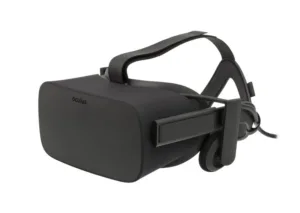Early VR leaders like Google, Samsung, Oculus, HTC and Valve will continue to drive the market forward, but differentiation between HMDs with a common form factor, such as tethered or mobile reliant, will become increasingly challenging as standards mature.
According to ABI Research, standards (including cross-platform support) are already in process within the Khronos Group (OpenXR) and IEEE to support a more homogenous VR landscape that will enable developers to target multiple platforms for applications more easily. Michael Inouye, Principal Analyst at ABI Research, said:
“On the surface, it might be difficult to see the trend toward a more unified VR market, but momentum is well underway. New entrants like Windows MR increase fragmentation, but the commonality in features across HMDs highlights a future where we’ll see more of the same than not.
This is particularly true as ‘newer’ aspects of the hardware like inside-out tracking, eye tracking, and high-quality displays become elements of the basic feature set. In time, we’ll see more effort to differentiate at the service and software level, rather than creating barriers within the hardware”.
To create separation between platforms, companies will have to emphasise software and application stores/platforms along with tailoring products to consumers and commercial end users. HTC is an early leader in this regard, making strong inroads into the professional markets, catering products and platforms to best suit regional differences, with strong investment in China. Other companies like Sensics are helping companies move from off-the-shelf products to solutions that more optimally suit specific applications and needs, such as destination-based VR. Inouye concludes:
“Whether it is common hardware platforms or cross-platform standards that help bring uniformity to VR, the market will benefit with more equitable user experiences across the board and stronger incentives for developers to invest in VR applications. A similar dynamic has occurred within the game console space, albeit VR’s future should have fewer ecosystem barriers than those erected by Sony, Microsoft and Nintendo.
While ABI Research believes Google will maintain the largest share of active users over the forecasting period, the market will develop best if market shares of individual platforms take a back seat to the overall growth of the market in aggregate”.

